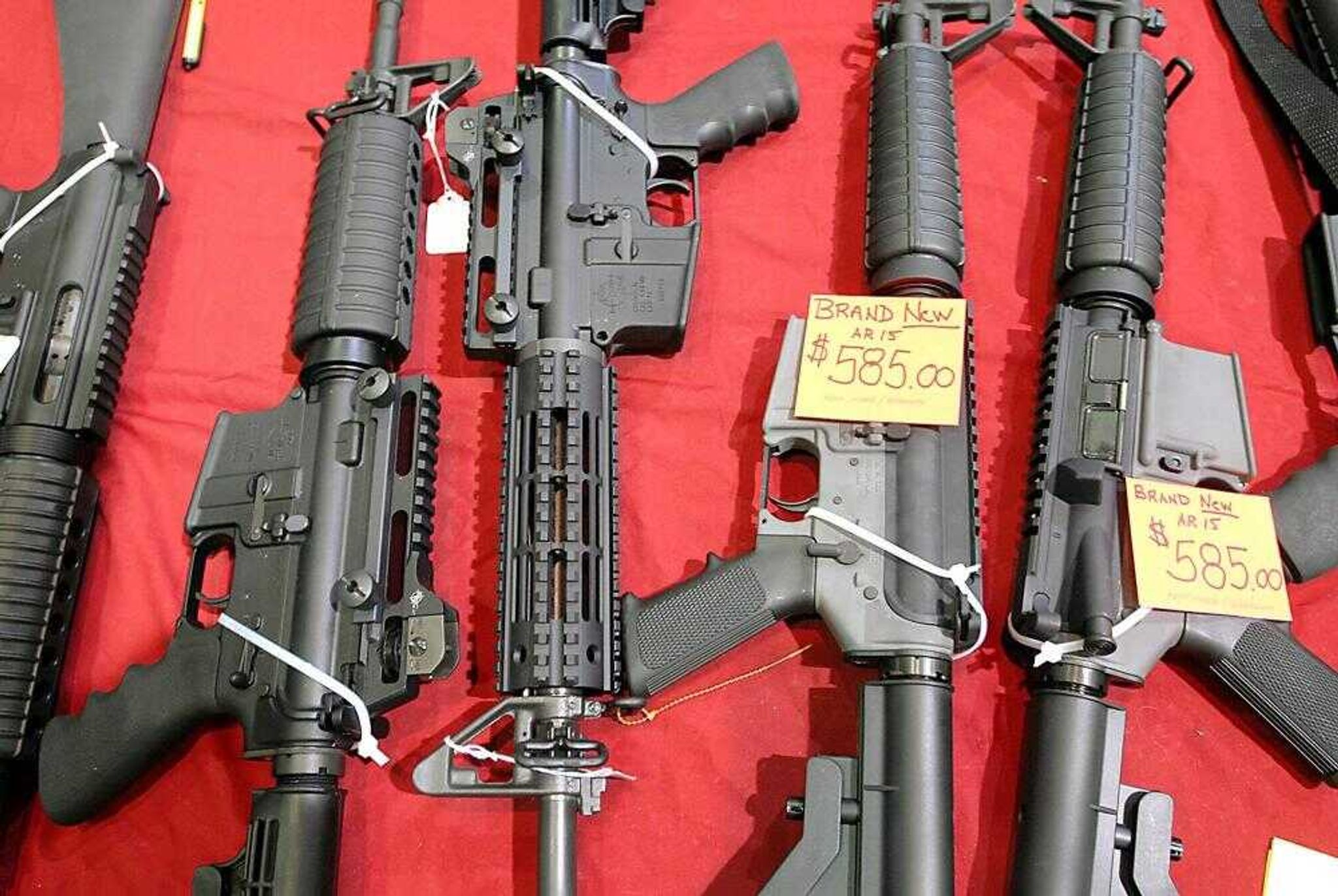Adding safety measures
When someone wants to buy a firearm, they must fill out a form, answering questions about their criminal and mental health history. They are then subject to an instant background check, courtesy of the FBI, which verifies whether they told the truth about having been convicted of a crime...
When someone wants to buy a firearm, they must fill out a form, answering questions about their criminal and mental health history. They are then subject to an instant background check, courtesy of the FBI, which verifies whether they told the truth about having been convicted of a crime.
While 22 states require that the FBI must be supplied with health records verifying that someone has been diagnosed with a mental illness, the majority, including Missouri, rely on the honor system when it comes to background checks for gun purchases.
Now, the Senate is considering a bill that would require states to supply the FBI with records showing someone has been institutionalized while initiating financial rewards for states that comply and penalties for those that fail.
The National Instant Criminal background check System, called the NICS, originated from the Brady Handgun Violence Prevention Act of 1993, was meant to be a safeguard to keep firearms from the hands of those considered likely to use them to commit crimes.
The new legislation, the National Instant Criminal Background Check System Improvement Act, which could be passed as soon as August, seeks to amplify that safeguard by preventing someone who had been "adjudicated to be mentally defective" from purchasing a handgun legally by falsifying the form.

The legislation is not considered a form of gun control, rather, a legal recognition that people found to be potentially dangerous by the state should not own guns, said Ashley Varner, spokesperson for the National Rifle Association.
"The Second Amendment is an inherent, fundamental right we try to protect," Varner said.
Those at the cutting edge of firearms safety training recognize the importance of practicing "good responsibility" in making sure a weapon doesn't find its way into the wrong hands, she said.
"I'm all for the reporting -- the last thing in the world I want to do is sell a crazy guy a gun," said Rowdey Enderly, who has managed the Cape Girardeau gun dealership Shooters for the last six years.
The FBI database serves as a safety net in case someone lies on a form to attempt to obtain a handgun. Though such a lie would be considered a felony, it might escape notice, whereas if the FBI had a record of everyone who had been declared mentally ill in that state, the falsehood could be caught instantly and that person would be barred from purchase.

In the April 16 shootings at Virginia Tech, Seung-Hui Cho killed 33 people, including himself, with a gun he bought legally, despite proof of mental health illnesses that should have rendered him ineligible, according to federal laws.
Had such a reporting requirement been in place, it would have made it harder on him to obtain a gun, although it may not have deterred him from committing the killing, Enderly said.
Enderly said Shooters is forced to deny no more than six or seven people a year of the right to purchase a gun.
"A person knows if they can walk into a gun shop and legally purchase a gun," Enderly said.
Glenn Rineheart, owner of Grand Enterprises, a gun store in Steele, Mo., said he has had to reject sale of a gun to someone in several instances where he had knowledge that they had been convicted of a serious crime, but for one reason or another, those records had been expunged, so it wouldn't have shown up on the background check.
Although the general consensus among gun owners is favorable toward the bill that would enforce reporting requirements, the National Mental Health Association expressed several specific concerns with some of the language in the legislation, said Ralph Ibson, vice president of government affairs of the NMHA.
Establishing the monetary incentives and penalties to make the bill enforceable would require the expenditure of about $1 billion over three years, he said.
The figure is a striking contrast to the limited effects for which the bill is intended, said Ibson, particularly when compared to the amount of money spent on providing public mental health services for the mentally ill.
Ibson said it would make more sense to devote the money to establishing a more functional approach to aiding and treating the mentally ill.
"It could induce such great fear as to dissuade the mentally ill from getting help," he said.
In addition, the new legislation could infringe upon the rights of the mentally ill, although some of those concerns have been addressed by legislators, Ibson said.
At the heart of those concerns are privacy rights.
"It's something that is a matter of exquisite personal sensitivity," said Ibson of the process of someone being declared mentally defective.
Another concern is the convoluted and unclear process by which someone who has overcome a mental illness could get his record cleared, Ibson said.
If the legislation is passed, supporters hope it could help prevent violent tragedies such as the Virginia Tech massacre, Varner said, but many have doubts as to how effective a crime deterrent the reporting requirement would actually be.
"How many criminals go out and commit crimes with guns they purchased legally?" Rineheart asked.
bdicosmo@semissourian.com
335-6611, extension 245
Connect with the Southeast Missourian Newsroom:
For corrections to this story or other insights for the editor, click here. To submit a letter to the editor, click here. To learn about the Southeast Missourian’s AI Policy, click here.










